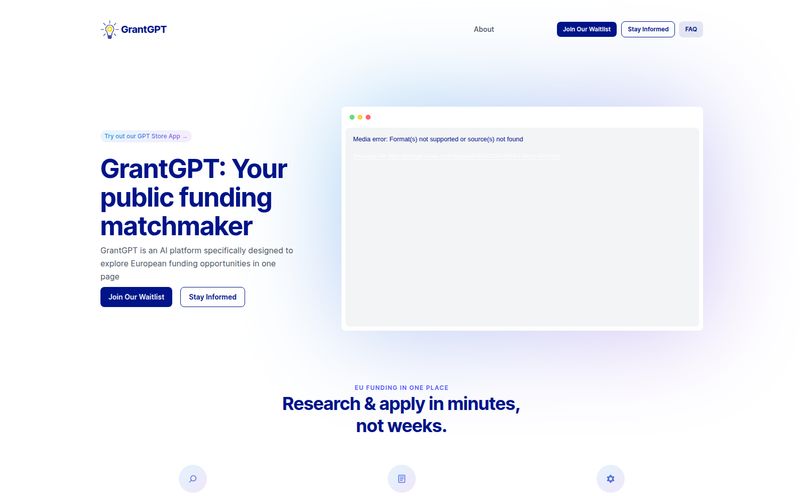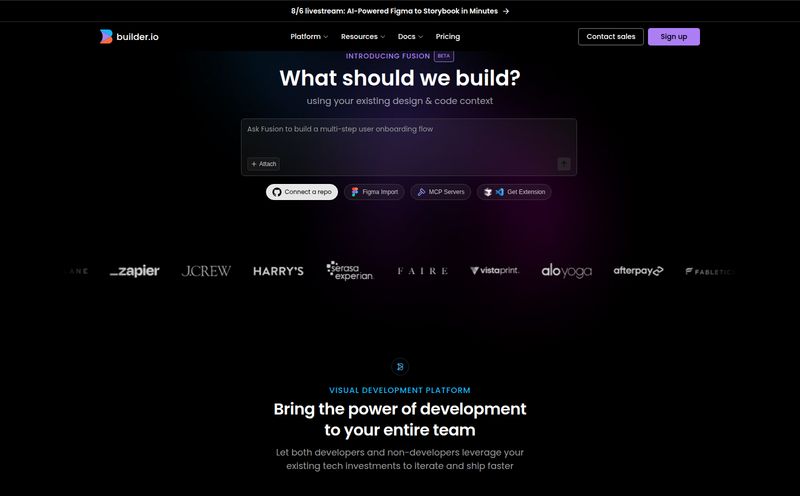Another day, another shiny new AI tool promising to solve all our problems. You know the drill. It’s going to automate our lives, streamline our workflows, and probably even walk the dog. So when I heard about Manus, a self-proclaimed "universal AI assistant that turns ideas into action," my seasoned-SEO-blogger senses started tingling.
Intrigued, I did what any of us would do. I popped the name into my browser, ready to be wowed. And I was greeted with… a 404 page. "This page could not be found."
Huh. Not exactly the grand entrance I was expecting. It's like finding a treasure map where 'X' marks the spot, but when you get there, the hole's already been dug and there’s just a sign that says, “Sorry we moved!” So, what’s the real story here? Is Manus AI a ghost in the machine, a brilliant idea that hasn't quite launched, or something else entirely? Let's do a little digging together.
What Exactly Is Manus Supposed to Be?
Putting aside the digital disappearing act for a moment, let's look at the concept. The pitch is that Manus is designed to be an all-in-one assistant for both your work and personal life. The goal? To let you “rest while getting things done.” I mean, who doesn't want that? That's the dream, right? After years in the trenches of content creation and traffic analysis, the idea of an AI that genuinely lightens the load is more appealing than a perfectly optimized, zero-competition keyword.
It's not just a chatbot or a simple task manager. The idea of a 'universal' assistant suggests something deeper. Something that can take a vague idea—like, say, "plan a marketing campaign for a new client"—and actually start putting the pieces together. It’s meant to be an orchestrator, not just an instrument.

Visit Manus
The Tongyi Qianwen Connection: A Glimmer of Hope?
Now, here's where things get interesting and a bit more concrete. The information I could find mentioned that the Chinese version of Manus is being developed with exclusive support from Tongyi Qianwen. If that name doesn't ring a bell, it should. That's the large language model from Alibaba Cloud, one of the major players in the global AI race.
This isn't some fly-by-night startup building on a shaky foundation. Having Alibaba's tech in its corner gives Manus a serious shot of credibility. We're talking about a company that's going toe-to-toe with the likes of Google and OpenAI. This suggests that, at least for the Chinese market, Manus has some serious horsepower under the hood. It does make me wonder, though, what the plan is for the global version. Will it use the same model, or partner with a different provider? The silence is deafening.
The Good, The Bad, and The... Missing?
Every tool has its ups and downs, but with Manus, it feels more like a list of promises versus a list of problems. It’s hard to judge a product you cant even find.
What Sounds Promising
The core promise of versatility is its biggest selling point. In my work, I use one tool for keyword research, another for content scheduling, a third for project management, and about five more for everything in between. The thought of consolidating even half of that into a single, intelligent platform is... well, it's pretty exciting. The emphasis on automation and freeing up user time is the holy grail for productivity nerds like myself. We're not just looking for tools to help us do more work; we're looking for tools to help us do less of the tedious work.
Where I'm Raising an Eyebrow
Okay, let's address the elephant in the room again: the 404 page. And the general lack of concrete information. It’s a massive red flag. In the hyper-competitive world of AI and SaaS, a strong launch and clear communication are everything. Being this mysterious can either mean you're in ultra-secret stealth mode before a huge reveal, or the project is simply stalled. Maybe the first task Manus automated was its own website.
Then there's the pricing. Or, the complete lack thereof. Is it a freemium model? A subscription service? Enterprise-only? This ambiguity makes it impossible to know who this tool is even for. We've all been burned by a tool that looks amazing until you see the four-figure annual price tag. I'm hoping for transparency, but right now, we have none.
So, Who Is Manus For (If It Exists)?
Speculation time! Based on the "turn ideas into action" tagline, I see Manus being aimed at entrepreneurs, project managers, and maybe even small creative teams. People who wear a lot of hats and need to translate brainstorming sessions into actual, tangible tasks and timelines. It fits squarely into the emerging category of 'AI agents'—AIs that don't just answer questions but actively do things on your behalf.
This is a trend I've been following closely. We're moving past the novelty of AI-generated text and images and into the realm of functional, autonomous AI. If Manus can deliver on being a true agent, it could be a game-changer. But that’s a very, very big 'if'. The tech is almost there, but the user experience and reliability are still major hurdles for everyone in this space.
My Final Verdict: A Watchful Wait
So, where does that leave us with Manus? It’s a classic mystery box. Inside, there could be a revolutionary tool that redefines productivity. Or, it could be empty. A great idea that never quite made it to the starting line.
The connection to Alibaba's Tongyi Qianwen gives me hope that this isn't just vaporware. There's real technology and a major corporation involved, at least on some level. But the lack of a functioning website, clear features, or any pricing info is a huge concern. For now, I'm filing Manus under "keep an eye on it." I've bookmarked the name (even if the URL is a dud for now) and set a reminder to check back in a few months. In the AI gold rush, some prospectors strike it rich, and others just go home with dirt in their pockets. It’s too early to tell which one Manus will be.
Frequently Asked Questions about Manus AI
What is Manus AI?
Manus is pitched as a universal AI assistant designed to automate tasks in both work and life, with the goal of turning a user's ideas into concrete actions and freeing up their time.
Who is behind Manus AI's Chinese version?
The Chinese version of Manus is exclusively supported by Tongyi Qianwen, the large language model developed by Chinese tech giant Alibaba.
Is Manus AI available now?
As of late 2024, the platform seems to be in a pre-launch or development phase. The official website has been inaccessible, showing a 404 error, which suggests it is not yet publicly available.
How much does Manus cost?
There is currently no publicly available information on the pricing or subscription model for Manus. Its pricing page is not live.
What makes Manus different from other AI assistants?
Its main differentiator is its claim to be a "universal" assistant that doesn't just manage tasks but actively helps in executing complex ideas, positioning itself as more of an autonomous AI agent than a simple productivity tool.
Conclusion
The story of Manus is a perfect snapshot of the current AI landscape: overflowing with incredible potential and frustrating ambiguity. The promise is tantalizing—a single, smart assistant to manage the chaos of modern life. The reality, for now, is a broken link and a lot of questions. I’m an optimist, but also a realist. I'll be thrilled if Manus launches and lives up to even half of its promise. Until then, it remains a fascinating idea, a ghost in the machine waiting for its moment to appear.
Reference and Sources
For more information on the technology mentioned as powering the Chinese version of Manus, you can read about Alibaba Cloud's AI model here:



